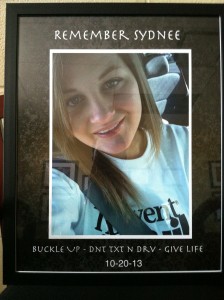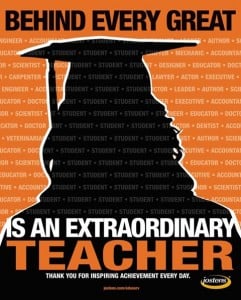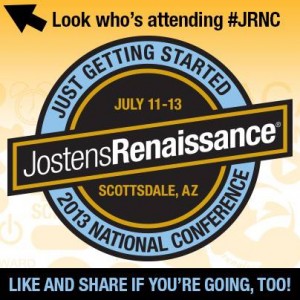 Author and Leadership Consultant, Ken Blanchard, wrote in one of his books, “Everything rises and falls on leadership.” I couldn’t agree more. However, I don’t think this has anything to do with positional leadership, but more about leadership principles. There are a number of people I consider leaders, from students to global dignitaries and everyone in between. I have learned and continue to learn what leadership is by observing others and reflecting on my own behaviors as a leader. Following are my most important principles that define leadership and how each principle is present or in the works at Gahanna Lincoln High School:
Author and Leadership Consultant, Ken Blanchard, wrote in one of his books, “Everything rises and falls on leadership.” I couldn’t agree more. However, I don’t think this has anything to do with positional leadership, but more about leadership principles. There are a number of people I consider leaders, from students to global dignitaries and everyone in between. I have learned and continue to learn what leadership is by observing others and reflecting on my own behaviors as a leader. Following are my most important principles that define leadership and how each principle is present or in the works at Gahanna Lincoln High School:
Vision
“Where there is no vision, the people perish.” -Proverbs 29:18. Vision creates a picture of what a group, team, or organization can become as the people involved work together towards a common purpose. Vision creates a powerful story about the organization and can inspire the high-quality, dedicated work of the people invoked. Without it, individuals will begin to do what they individually think is best, thus creating islands of excellence as opposed to a shared, collective and common purpose. Without vision, there will be conflicting values, uncommon language, and unclear expectations, thus leading to resistance, frustration, and low morale.
At Gahanna Lincoln, we are guided by the vision detailed in our district’s Graduate Profile. Teachers use the profile strands as learning targets as they plan lessons and units. Our Graduate Profile is aligned with the College and Career Readiness standards that are a part of the Common Core Stand Standards. Our Dean of Curriculum, Brooke Menduni, has done an outstanding job of facilitating the transition to the Common Core. Her leadership is helping us to ensure teaching and learning is focused on essential skill development through the content.
For the development of the key skills that are necessary today (communication, creativity, collaboration, and critically thinking) to occur, we have to have a positive school climate and school culture. Risk tasking, trust, and celebration have to be a part of the equation. To ensure this happens, we celebrate student and staff success on a consistent basis through monthly PRIDE (Personal Responsibly In Developing Excellence) Award nominations, monthly staff luncheons (bonding), quarterly student recognition ice cream socials, and two Renaissance Pep Rallies. Individual teachers, like AP American History and World Studies teacher, Ben Cullivan have even created student celebrations within their classrooms. Ben designed a medal he gives to the top student in each of his classes at the end of the year. This has become quite the tradition and the students work extremely hard to earn this special recognition.
Teachers can nominate students and their colleagues each month to receive the PRIDE Award for demonstrating any of the skills outlined in our Graduate Profile or our district adopted character education traits. The names of all the students during the month are scrolled on the announcements and they meet in the lobby to receive a certificate and to take a group photo, which is then displayed in one our busiest hallways. We then follow up with a quarterly breakfast for all the recipients and their parents. It’s a little thing, but our part of our vision is to recognize what is going well so that we get more of it!
Relationships
We are in the business of developing, nurturing, and sustaining positive relationships with people. One of my favorite quotes as an educator is, “No significant learning takes place without a significant relationship” by Dr. James Comer. This has guided me and will continue to do so as long as I’m an educator because learning is a social event that comes through sharing, discussing, debating, and exploring with others. Without significant relationships, learning can be limited.
At Gahanna Lincoln, the focus on creating and sustaining positive relationships is crucial to our success. We have created our Freshmen Experience (9th grade academy) to help nurture our freshmen and show them what it means to be a Gahanna Lincoln High School Lion. Our departments constantly have social events, staff parties, and have fun rituals. We encourage our students to get involved in something at school: the arts, clubs and activities, or athletics in order to create a connection with an adult at school. Currently, over 27% of our students are involved in the arts and over 33% participate in one of our 26 athletic teams. We offer over 30 clubs and organizations for students to participate in and students are encouraged to start a club of interest. Our new Library Media Aide, Brian Winston, has informally started a Chess Club this year and the room is packed before school, during the lunch periods, and after school. The activity is the vehicle that fosters the positive relationships and the same holds true in the classrooms.
Clear Expectations
Educator, author, and presenter Dr. Todd Whitaker reminds every educator to state very clear expectations at the beginning of the year in order to create a positive learning environment. Like the teachers at Gahanna Lincoln, I take the opportunity to do just that during our opening day staff meeting. My expectations of staff are simple:
a. Be Present- not just physically, but emotionally and mentally present
b. Be Punctual-punctuality is a sign of respect
c. Be Prepared- prior planning prevents poor performance
d. Be Professional- dress, talk, conduct, and learning
e. Create a positive climate in your classroom
f. Communicate with parents and colleagues
To include students in the process, the last two years I met with about 400 juniors and seniors who have classes in Clark Hall, our new addition to our campus, and asked them what we should expect of them. This conversation took place four times on the first full day of school and each group came up with the same expectations:
a. Respect
b. Responsibility
c. Trust
d. Team Work
e. Good attendance
f. Hard work
g. PRIDE
Could we ask for anything more?
Communication
This has become one of the most important characteristics any leader should possess. It’s not just disseminating information, but listening, responding, and using a variety of tools to share our story. Good communication, like presence, requires time, but it’s time well spent.
At GLHS, our teachers have embraced the use of Home Access Center, which is our online tool to share students’ grades with parents and students. Each teacher has also created a portal, or individual website, to let parents and students know about lesson objectives, homework assignments, and upcoming tests. In addition to the Home Access Center and the portals, we have several official GLHS Twitter accounts and Facebook pages. With the use of social media, a lack of communication should be a thing of the past.
I will continue to promote the use of social media as a means to communicate with our stakeholders; however, nothing replaces the need for face-to-face interaction.
Team Work and Service
Each of our departments has a Department Chairperson who not only represents the department as part of the school Leadership Team, but they are responsible for unifying the department, supporting new teachers, and tapping into the strengths of each of the members.
Several of our teachers are advisors of school clubs and organizations like Student Council, the Renaissance Action Team, the S Club, National Honor Society, Interact, and Key Club, to name a few. Together, these students have made a positive impact on our school environment by serving others, organizing events, or working together to solve a problem. The teachers help to create the environment for students to take risks as leaders and learn from mistakes.
Accountability
There is an old saying that, “What’s inspected is respected.” Accountability is not about getting people in trouble, but ensuring the expectations, values, and norms are met more consistently. Holding others accountable can be uncomfortable for me as a leader, but it’s not about my feelings. What is required is for each teacher, administrator, secretary, guidance counselor, custodian, and cook to do our jobs to the best of our ability. It’s my job to provide the proper training, support, and resources for this to occur.
We all have improved in this area, especially since we have started to use Google Docs to share what each department does during department meetings and we’ve circulated the book, Shifting The Monkey by Dr. Todd Whitaker, to help one another confront negative behaviors, put the monkey back where it belongs, and become more efficient. This is still a work a progress for me as a leader and for our building as a whole, yet we are definitely making progress!
Learning
I’ve learned from my staff and my PLN to be transparent about my learning experiences by blogging, tweeting, sharing books that I’ve read with others, sharing my teachers’ blogs, attending conferences, and presenting at local and national conferences. In the process of being transparent about my learning, I am promoting the learning at Gahanna Lincoln High School.
Over the last five years, our school’s grade point average has increased from a 2.77 to 3.02, our attendance rate has been steady at 94%-95%, more students are taking AP courses, our ACT score average is above the state average and our graduation rate has been steady at 93%-94%. Our expulsions have fallen below 20 each of the last four years and more teachers are providing the opportunity for students to redo tests and resubmit homework assignments as they become more focused on learning and less focused on time. This has been a muddy, messy process, but overall, it’s rewarding to see students feel like they have a chance to demonstrate their learning.
We continue to have teachers present their learning during staff meetings and department meetings as a way to encourage professional growth. It’s important for all of us to share our learning experiences from attending conferences and workshops with our colleagues. This eliminates excuses like, “the presenter doesn’t know my students, so that won’t work in my classroom.” The presenters in our building are members of our staff who teach our students in our district and in our building.
There is so much expected of school leaders today, which require us to review our foundational principles to make sure they are aligned with our daily activities. Change has always been a part of the field of education; however, the rate of change that we are currently seeing is like no other time in history. In spite of the changes, the leadership principles we hold onto must guide us as we guide others.
What leadership principles are most important to you?
Be Great,
Dwight
This is cross-posted on Connected Principals
 A couple of years ago, a second year teacher stopped by my office after school and asked if we could talk. The look on her face had me concerned so, of course, I welcomed her to have a seat. I thought she was going to share her concerns about student behavior or wanted help to solve a problem. Man, was I was wrong. What she said to me made a lasting impression…
A couple of years ago, a second year teacher stopped by my office after school and asked if we could talk. The look on her face had me concerned so, of course, I welcomed her to have a seat. I thought she was going to share her concerns about student behavior or wanted help to solve a problem. Man, was I was wrong. What she said to me made a lasting impression…








